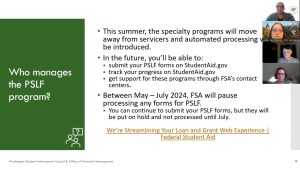
Non-traditional students have several student loan options, including federally insured loans with lower interest rates and benefits like income-driven and loan forgiveness plans available to them.
Students should explore state and university grants; some employers also provide tuition assistance programs for employees.
Scholarships
As the number of non-traditional students has increased, so has scholarship programs tailored specifically for them. These scholarships assist non-traditional students by covering tuition fees and materials; helping them finish their degrees without incurring debts along the way.
Given that people have different goals for what they wish to do after high school graduation, it makes sense that not everyone enrolls immediately after graduating high school. Some may take time off education for personal pursuits or family matters; others simply need additional time deciding their educational path.
Reasons such as these characterize nontraditional students, which is why there are numerous scholarships designed for them. Some scholarships may be merit-based while others target certain careers or demographics – for instance, Mom to Scholar scholarship provides assistance for single mothers balancing academics with parenting responsibilities while National Hook-Up of Black Women scholarship supports women returning to school who need financial help in doing so.
Additionally to these unique scholarships, colleges often provide their own in-house scholarships and aid packages for non-traditional students. While each application process can be complicated and time consuming, taking advantage of any grants which might be available is worth your while!
If you are an non-traditional student looking to launch their career or further their studies, be sure to apply for any scholarships that could help. With some research, you may even discover one that fits perfectly into your plans for success!
Mindful of how much scholarship money you qualify for, it’s still important not to go overboard on borrowing. Know your total loan limit and average starting salary in your field so as to not take out more loans than necessary. Additionally, avoid scams online scholarship search engines offer. Only use reliable sites when applying for scholarships with references before doing so and hopefully you’ll have better odds at receiving an award that meets your needs.
Grants
Non-traditional students make up an increasing portion of the national student body, including dislocated workers, single parents and adults looking for new career opportunities. Although non-traditional students face unique obstacles when enrolling in higher education institutions, financial aid such as grants or scholarship money that doesn’t need to be repaid is readily available and can help cover tuition and related costs.
Federal Student Grants
To find grants for nontraditional students, the first step should be completing the Free Application for Federal Student Aid, commonly referred to as FAFSA. This form gives all nontraditional students access to one of the nation’s largest sources of financial aid – regardless of age or status as nontraditional student. Once complete, search grant programs that best fit with your situation as an adult student – such as engineering scholarships that specifically cater towards your gender and career goals.
Many state governments, private donors and professional associations provide grant programs designed specifically for non-traditional students. These grant programs may range from merit based awards to those that provide funds based on an individual college major such as nursing. Some programs have very strict eligibility criteria while others require extensive application processes.
Checking in-house grant offerings at each school you are considering can also be useful, as many offer nontraditional scholarships that require extra time and effort to navigate administrative processes, but can provide more personalised solutions to financing their higher education.
Federal Student Loans
If you are a non-traditional student – for instance if you are older than the typical undergraduate student or returning to school after starting a family or other life events have derailed your academic pursuit – student loan options designed for traditional students may leave you in the cold when financing your education. But there are loans designed specifically for non-traditional students that may provide assistance.
Start off your application for financial aid by filling out a Free Application for Federal Student Aid (FAFSA). While it might seem obvious that filling this out for college degrees programs, many don’t realize it can also serve as the gateway to finding other forms of assistance like grants and scholarships.
The FAFSA form is your gateway to federal student aid and will give you access to many different loan and grant programs. Additionally, this form can also help you apply for state, local, and private loans.
Federal loans for non-traditional students typically target those pursuing specific certificates that lead to careers like cosmetology or law enforcement training, as well as courses that lead to teacher certification certifications. You’ll be able to find more information about eligibility and requirements by using the government’s College Navigator tool.
As soon as you begin repaying your loans, there are various repayment plans you can select from to select one that best meets your income and other circumstances. Exploring all available options before selecting one that meets both your budget and long-term goals.
Although the loan limits for non-traditional students have been increased, you should still aim to limit how much debt you take on. Over-borrowing can make monthly payments harder to manage if your plan includes income-based repayment or forgiveness options; you could also consolidate federal and private loans into one loan for improved interest rates or terms.
Private Student Loans
Many non-traditional students turn to higher education in order to advance their careers or reenter the workforce after taking an extended hiatus due to family, work or other obligations. Like traditional students, non-traditionals face some similar college funding concerns but are likely older, working part time while attending school part-time and may already have significant credit card debt accumulated. Luckily, loan options exist specifically tailored for this population of learners.
Private student loans provide alternative funding solutions for students who do not meet federal loan eligibility criteria, including certificate programs that do not lead to degrees (such as cosmetology). These loans tend to feature lower interest rates than federal student loans and come with multiple repayment terms of five-20 years; you can borrow up to the total cost of attendance minus other financial aid received.
Prior to applying for private student loans, it’s advisable to explore other means of funding college. If possible, try to maximize federal loans first to take advantage of income-driven repayment plans and loan forgiveness programs. Furthermore, private student loans don’t typically provide as many safeguards like deferment and forbearance periods available through federal student loans.
Before applying for a private loan, compare lenders carefully in order to identify one with the ideal combination of loan terms, interest rate and fees. A simple way of doing this is completing prequalification forms – this won’t impact your credit score! Also keep in mind whether or not you prefer fixed or variable interest rates when making this choice.
Once you’ve identified a lender that meets your loan needs, complete their application and credit approval process. When approved, loan documents will be delivered electronically for signature. Your school will then certify and disburse funds directly to you – typically within 10 business days from when you submitted your application! You’ll then use these funds towards covering college expenses.






